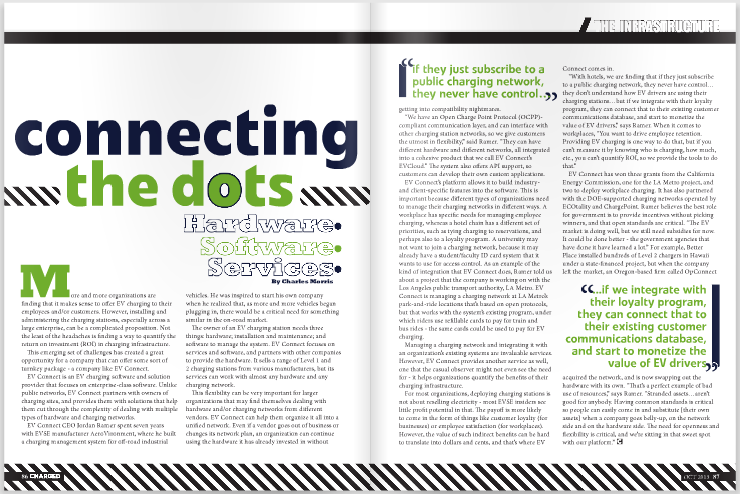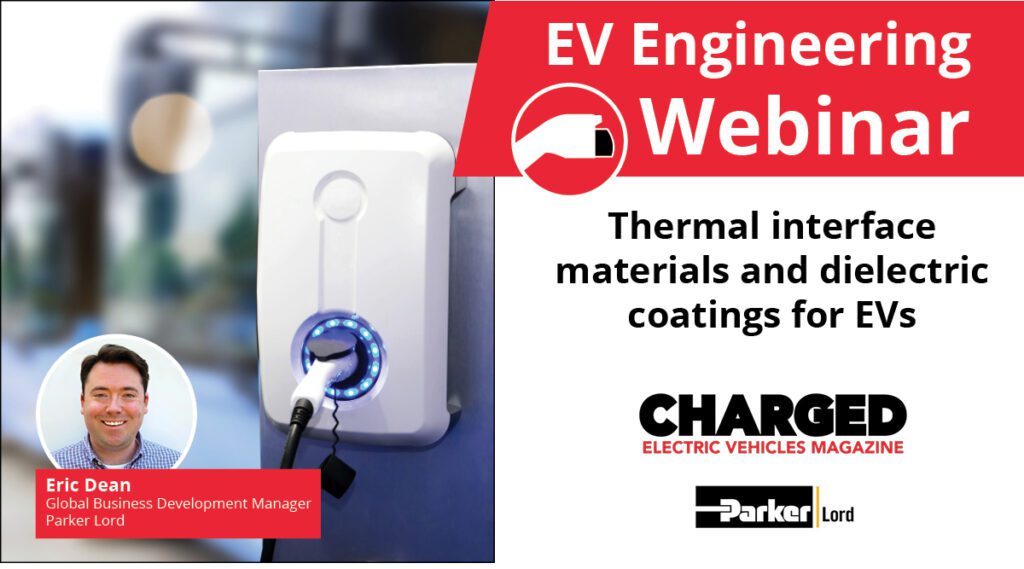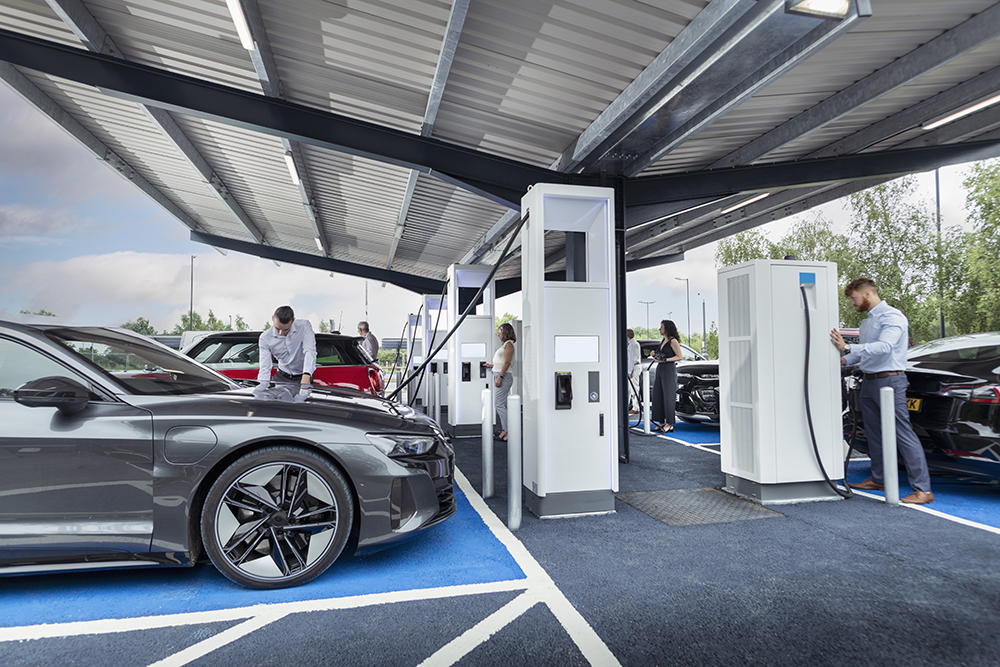More and more organizations are finding that it makes sense to offer EV charging to their employees and/or customers. However, installing and administering the charging stations, especially across a large enterprise, can be a complicated proposition. Not the least of the headaches is finding a way to quantify the return on investment (ROI) in charging infrastructure.
This emerging set of challenges has created a great opportunity for a company that can offer some sort of turnkey package – a company like EV Connect.
EV Connect is an EV charging software and solution provider that focuses on enterprise-class software. Unlike public networks, EV Connect partners with owners of charging sites, and provides them with solutions that help them cut through the complexity of dealing with multiple types of hardware and charging networks.
EV Connect CEO Jordan Ramer spent seven years with EVSE manufacturer AeroVironment, where he built a charging management system for off-road industrial vehicles. He was inspired to start his own company when he realized that, as more and more vehicles began plugging in, there would be a critical need for something similar in the on-road market.

The owner of an EV charging station needs three things: hardware; installation and maintenance; and software to manage the system. EV Connect focuses on services and software, and partners with other companies to provide the hardware. It sells a range of Level 1 and 2 charging stations from various manufacturers, but its services can work with almost any hardware and any charging network.
This flexibility can be very important for larger organizations that may find themselves dealing with hardware and/or charging networks from different vendors. EV Connect can help them organize it all into a unified network. Even if a vendor goes out of business or changes its network plan, an organization can continue using the hardware it has already invested in without getting into compatibility nightmares.
“We have an Open Charge Point Protocol (OCPP)-compliant communication layer, and can interface with other charging station networks, so we give customers the utmost in flexibility,” said Ramer. “They can have different hardware and different networks, all integrated into a cohesive product that we call EV Connect’s EVCloud.” The system also offers API support, so customers can develop their own custom applications.
EV Connect’s platform allows it to build industry- and client-specific features into the software. This is important because different types of organizations need to manage their charging networks in different ways. A workplace has specific needs for managing employee charging, whereas a hotel chain has a different set of priorities, such as tying charging to reservations, and perhaps also to a loyalty program. A university may not want to join a charging network, because it may already have a student/faculty ID card system that it wants to use for access control. As an example of the kind of integration that EV Connect does, Ramer told us about a project that the company is working on with the Los Angeles public transport authority, LA Metro. EV Connect is managing a charging network at LA Metro’s park-and-ride locations that’s based on open protocols, but that works with the system’s existing program, under which riders use refillable cards to pay for train and bus rides – the same cards could be used to pay for EV charging.
Managing a charging network and integrating it with an organization’s existing systems are invaluable services. However, EV Connect provides another service as well, one that the casual observer might not even see the need for – it helps organizations quantify the benefits of their charging infrastructure.

For most organizations, deploying charging stations is not about reselling electricity – most EVSE insiders see little profit potential in that. The payoff is more likely to come in the form of things like customer loyalty (for businesses) or employee satisfaction (for workplaces). However, the value of such indirect benefits can be hard to translate into dollars and cents, and that’s where EV Connect comes in.
“With hotels, we are finding that if they just subscribe to a public charging network, they never have control…they don’t understand how EV drivers are using their charging stations…but if we integrate with their loyalty program, they can connect that to their existing customer communications database, and start to monetize the value of EV drivers,” says Ramer. When it comes to workplaces, “You want to drive employee retention. Providing EV charging is one way to do that, but if you can’t measure it by knowing who is charging, how much, etc., you can’t quantify ROI, so we provide the tools to do that.”
EV Connect has won three grants from the California Energy Commission, one for the LA Metro project, and two to deploy workplace charging. It has also partnered with the DOE-supported charging networks operated by ECOtality and ChargePoint. Ramer believes the best role for government is to provide incentives without picking winners, and that open standards are critical. “The EV market is doing well, but we still need subsidies for now. It could be done better – the government agencies that have done it have learned a lot.” For example, Better Place installed hundreds of Level 2 chargers in Hawaii under a state-financed project, but when the company left the market, an Oregon-based firm called OpConnect acquired the network, and is now swapping out the hardware with its own. “That’s a perfect example of bad use of resources,” says Ramer. “Stranded assets…aren’t good for anybody. Having common standards is critical so people can easily come in and substitute [their own assets] when a company goes belly-up, on the network side and on the hardware side. The need for openness and flexibility is critical, and we’re sitting in that sweet spot with our platform.”
This article originally appeared in Charged Issue 10 – OCT 2013










































































































